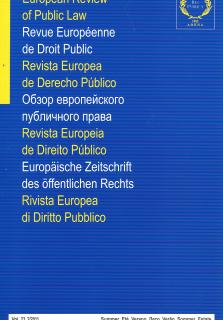
Constitutional Law / Droit constitutionnel
Denmark / Danemark
This chronicle examines what is undoubtedly the most interesting constitutional case in Denmark in 2010. In the case - the so-called Iraq Case - the Danish Supreme Court was asked to rule on the constitutionality of the Danish participation in the 2003 American-led multinational mission in Iraq. First of all, the chronicle provides a brief overview of the Danish constitutional rules on the use of force, requiring the consent of the Danish Parliament to any use of military force against other States. This is followed by a case summary showing that the pivotal point of the case was the procedural question of locus standi for the applicants. It is argued that the Supreme Court, in principle, relaxed the standard criteria for locus standi whilst not finding sufficient grounds for granting the applicants standing on the specific facts of the case. Furthermore, the Supreme Court indirectly pronounced on the substantive issue, essentially rejecting the argument that the Danish Parliament may only consent to the use of military force if this is in conformity with international law. The final section of the chronicle considers the implications of the case, finding that the Danish Supreme Court is moving in the direction of a constitutional court by assuming an increasingly assertive and independent role. As to substantive constitutional law, the case firmly entrenches the fundamentally dualist position in the relationship between Danish constitutional law and international law.





















